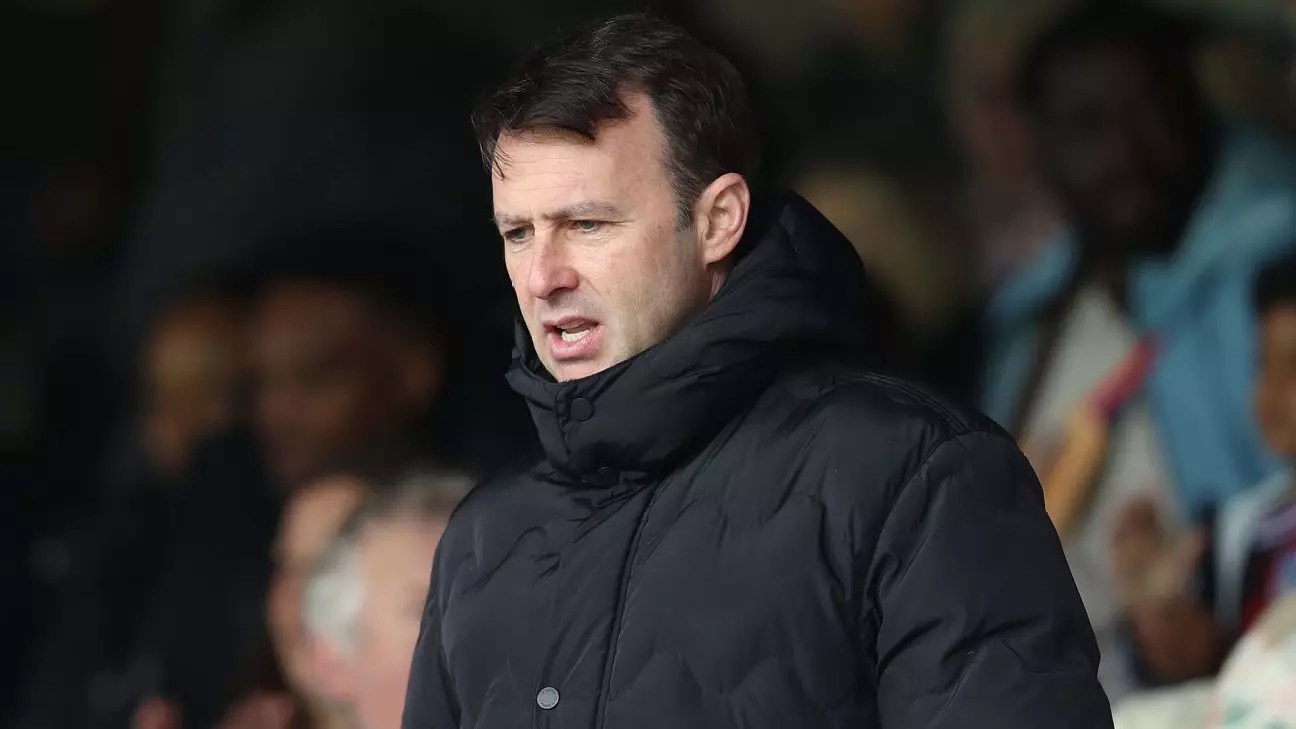Crystal Palace has announced a significant shift in its leadership, marking the departure of Dougie Freedman, the club’s sporting director, who is set to take on an exciting role abroad. Freedman’s transition from the club symbolizes not just a personal career move but also highlights the evolving landscape of football management, where strategic foresight and talent development have become paramount. His tenure at Palace has been characterized by a robust commitment to nurturing talent and making daring transfer decisions that have resonated well within the competitive corridors of the Premier League.
Skillful Scouting and Talent Development
During his time at Crystal Palace, Freedman has emerged as a key figure in the recruitment and development of players, solidifying his reputation as one of England’s top sporting directors. His success in identifying raw talent and potential can be seen in the rise of stars like Eberechi Eze and Marc Guéhi, whose performances have not only elevated the club’s standings but have also attracted attention from larger clubs. Freedman’s eye for talent is reflected in the balanced squad he leaves behind—one that is ready for future challenges under the guidance of new manager Oliver Glasner.
His approach transcends mere transactions; it fosters a culture of development—signaling a wider industry movement towards enhancing youth academies and integrating them with first-team dynamics. Freedman’s contributions to this shift are commendable, as he has facilitated the integration of academy prospects who now represent the future of the club. Core to his ethos has been a belief in the importance of nurturing local and young talent, which can create sustainable success that aligns with the club’s identity.
Gratitude and Legacy
In his farewell statement, Freedman expressed heartfelt thanks to the club’s hierarchy, staff, players, and especially the fans. His acknowledgment of the emotional connection between the team and its supporters underlines a critical aspect of football—its community and the intangible value that passionate support brings. Freedman’s gratitude indicates a profound respect for the culture and spirit surrounding Crystal Palace, something he indicated will remain close to his heart even as he embarks on a new journey.
The chairman, Steve Parish, lauded Freedman’s instrumental role in revamping the sporting department and attested to his significant contributions to the club’s successes over the years. Freedman’s departure leaves behind a well-structured organization poised for continuity and growth. This kind of succession planning is fundamental in modern football, which often faces tumultuous changes in management and strategy.
A Thriving Future Ahead
Crystal Palace sits in a comfortable position in the Premier League, with hopes high as they approach upcoming matches, including their FA Cup quarter-final against Fulham. Freedman’s departure might raise questions, but the club’s strategic foundations he helped construct ensure that they are ready to confront the challenges ahead. His impact will resonate in the coming years, and it remains to be seen how Palace will continue to evolve under new leadership.
In the dynamic world of football, such transitions are inevitable. The real measure of Freedman’s legacy will be how the club capitalizes on his groundwork, ensuring that it continues to thrive in a competitive environment. For Freedman, this new chapter isn’t just an exit; it’s a stepping stone in a career enriched by experience and marked by notable achievements. The football community will be watching closely as both Freedman and Crystal Palace navigate their respective paths in the game.


Leave a Reply